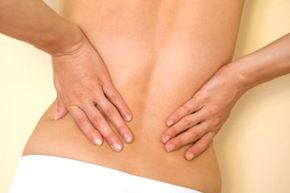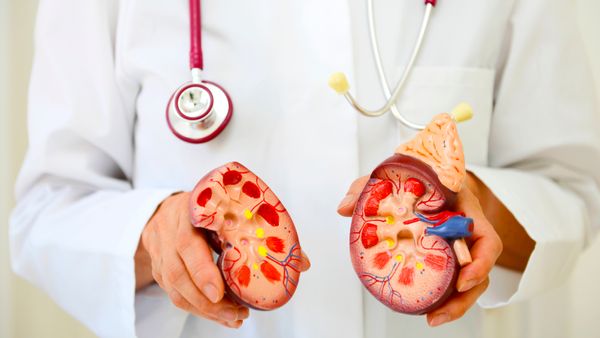Lower back pain can be debilitating. Finding the root cause of it can be nearly as frustrating. Part of the reason is the complexity of the human muscular-skeletal system, and the fact that so many stresses from our erect posture can come home to roost in our lower backs.
The source of back discomfort can be muscular in nature, such as back spasms or a pulled muscle. Or it can be related to our skeletal system, ranging from hip and pelvic injuries to a misaligned spine compressing nerve tissue. But lower back pain can also be attributed, in certain instances, to internal organs, and specifically kidney problems.
Advertisement
Kidney pain, ranging from mild infection and kidney stones to acute renal failure, can often be mistaken for lower back pain because that's exactly where they're located. Our kidneys -- two fist-sized organs responsible for maintaining a healthy blood composition -- are found just above our pelvic saddle, one on each side of our spine [source: Freudenrich]. To make matters more complicated, pain from an infected kidney can even radiate to our hips and groin area.
A key factor is determining whether your lower back pain is accompanied by other symptoms of kidney infection, including fevers and high temperatures, an upset stomach, cloudy, bloody or malodorous urine, and more frequent urination [source: Fitzpatrick].
Want an expert opinion? Get the doctor's prognosis on the next page.
Advertisement

